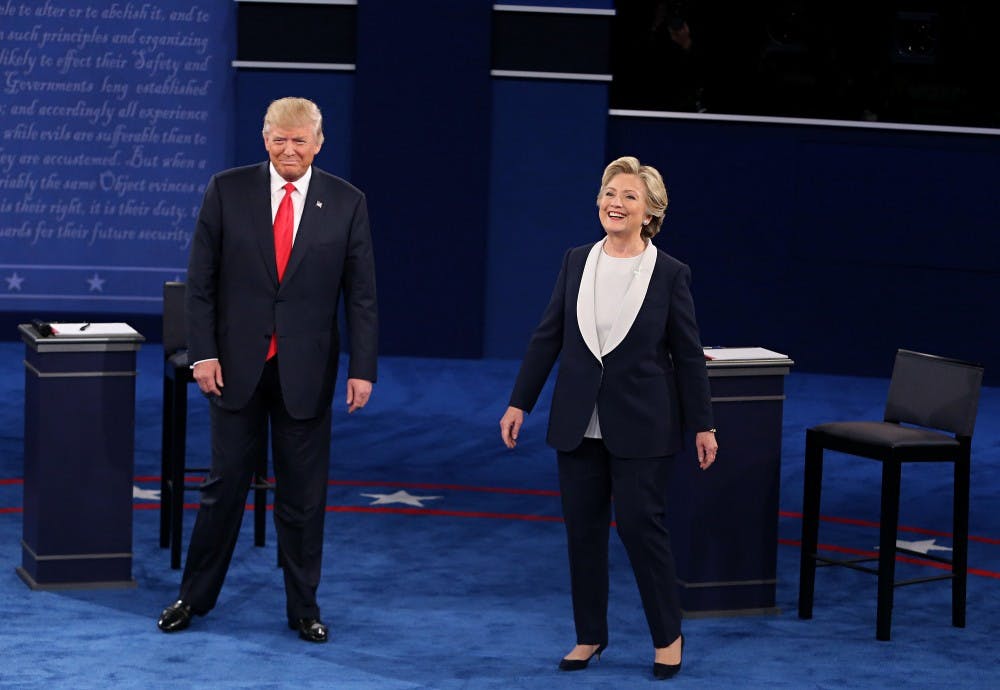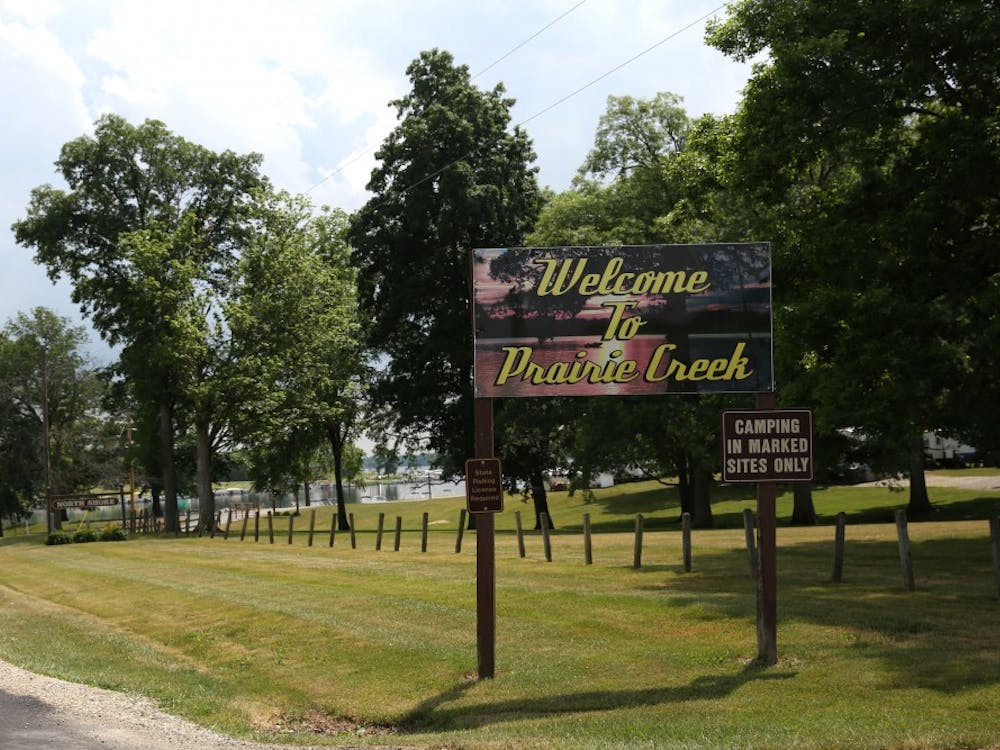The Ball State Democrats support Hillary Clinton for president, John Gregg for governor and Evan Bayh for Senator.
The Ball State Republicans support Donald Trump for president, Eric Holcomb for governor and Todd Young for senator.
Donald Trump and Hillary Clinton’s debate was all the talk Oct. 19, but there was another debate that was a bit less divisive.
For some students, the debate between Ball State Republicans and Ball State Democrats at Park Hall was, instead, the start of an eventful evening. Questions for students representing both of the parties were pulled from the website ISideWith, and students in the audience were also able to ask questions toward the end of the debate.
Jacob Peterson, a junior business administration major and resident assistant at Park Hall, moderated the debate. He said his goal was to help students learn what the political parties were doing at Ball State, as well as on the national level.
“I hope you noticed the number of things we agreed on tonight rather than the number of things we disagree on," Peterson said.
Both parties had some degree of agreement on issues like legalizing marijuana, same-sex marriage and increased pay for teachers. On the topic of legalizing marijuana, the parties agreed that marijuana has economic benefits, it could solve issues in the correctional system and free up resources for law enforcement.
Later in the debate, the college students also thought it was time to get over the "unnecessary banter" on same-sex marriage, and each party agreed there were bigger issues that need to be taken care of.
“Both parties need to come together and say, 'Let's put this one to rest,'” said Anthony Cook, a senior construction management major and chairman of the BSU Republicans.
The parties also agreed teachers should be paid more and "throwing money at schools" won't fix all the problems with education.
Even though there was agreement on many of the topics, there still were issues that, for the most part, the political parties could not agree on. These included abortion, gun control and torture techniques, like waterboarding.
Most of the republicans were strongly against abortion while the Democrats supported the procedure.
“It’s not right because it’s murder of the most innocent of us all. It’s not pro-choice; it’s pro-murder,” said Kirstin Baker, a junior accounting major and the secretary for the Ball State Republicans.
The democrats believed the government shouldn’t have a say on the issue.
“It’s not the government's position to be telling any woman what they can and cannot do with their body,” said Kayla Stinson, a junior physics major and finance director of the Ball State Democrats.
Gun control was another question the parties couldn’t quite agree on.
"Something that needs to be clear is that 'Guns don’t kill people, people kill people,'” Cook said.
The Democrats refuted by saying they understand guns don’t kill people but “they do make it easier."
The discussion around torture methods used by the United States against suspected terrorists was also split between the two parties.
The Democrats believed it was morally wrong to torture someone else and the method wasn’t affective.
“There are other ways to get information out,” said John Rash, a sophomore social studies major and president of the Ball State Democrats.
On the other hand, the Republicans were split on the issue.
“I have absolutely no problem with taking the most extreme measures in order to find out who did that, why and what they were doing," Cook said.
Haley Gustafson, a public relations major and member of the Ball State Republicans, agreed with the Democrats, and said it was because she believes the practice is immoral and ineffective.
After the student debate, people could stay and watch the presidential debate. Students who viewed both debates said they noticed a difference between the one between students and the one between presidential candidates.
Erick Portillo, a freshman architecture major, said he thought the student debate was more moderate than the national debate.
“They were agreeing on a lot of positions that are a problem [for] American society," Portillo said.
Erica Somerson, a junior sociology and women and gender studies major, said she thought the student debate was respectful and realized there weren’t any interruptions.
“The presidential debate is a lot of bashing and there has to be fact checking at all statements made," Somerson said.
At the end of the evening, both student groups at the debate listed their desired candidates for president. The Ball State Democrats support Hillary Clinton for president, John Gregg for governor and Evan Bayh for senator. The Ball State Republicans support Donald Trump for president, Eric Holcomb for governor and Todd Young for senator.





